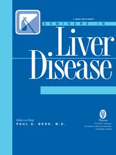
SEMINARS IN LIVER DISEASE
Scope & Guideline
Pioneering discussions in the field of hepatology.
Introduction
Aims and Scopes
- Liver Disease Mechanisms and Pathophysiology:
The journal emphasizes understanding the underlying biological mechanisms of liver diseases, including metabolic dysfunction, inflammation, and fibrosis, to inform therapeutic approaches. - Clinical Management and Treatment Strategies:
A core focus is on the clinical management of liver diseases, discussing treatment options, patient care strategies, and recent advancements in therapy. - Innovative Diagnostic Approaches:
The journal explores novel diagnostic methods, including non-invasive tests and biomarkers, to improve early detection and monitoring of liver diseases. - Transplantation and Regenerative Medicine:
Research on liver transplantation, advancements in regenerative medicine, and the use of stem cell therapies are significant themes, highlighting their role in treating end-stage liver diseases. - Emerging Therapies and Precision Medicine:
There is a consistent focus on precision medicine, exploring targeted therapies and personalized treatment plans based on genetic and molecular profiling of liver diseases. - Interdisciplinary Research and Collaboration:
The journal encourages interdisciplinary research that combines hepatology with fields such as immunology, oncology, and microbiology, fostering collaboration between researchers and clinicians.
Trending and Emerging
- Metabolic Dysfunction-Associated Liver Disease (MASLD):
Recent publications show an increasing focus on MASLD, emphasizing its clinical significance, diagnostic challenges, and treatment strategies, reflecting a broader recognition of metabolic factors in liver disease. - Immunotherapy and Liver Cancer:
The rise in studies exploring the role of immunotherapy and immune checkpoint inhibitors in liver cancer treatment showcases a growing interest in harnessing the immune system to combat liver malignancies. - Non-Invasive Biomarkers and Diagnostic Tools:
There is a marked trend towards developing and validating non-invasive biomarkers for liver disease assessment, aligning with the need for safer and more accessible diagnostic methods. - Integrative Approaches to Liver Health:
Emerging themes highlight integrative approaches that combine lifestyle, microbiome research, and metabolic health with liver disease management, indicating a holistic view of liver health. - Single-Cell and Spatial Omics Techniques:
The adoption of advanced techniques like single-cell and spatial transcriptomics is on the rise, allowing for deeper insights into liver biology and disease mechanisms at an unprecedented resolution.
Declining or Waning
- Traditional Hepatitis Treatments:
As newer therapies and more effective treatments for hepatitis B and C emerge, traditional treatment discussions have become less frequent, reflecting a shift towards discussing innovative therapies and their implications. - Generalized Dietary Recommendations:
Specific dietary guidelines for liver disease management have seen a decline, possibly as the focus shifts to personalized nutrition approaches that consider individual patient needs. - Basic Hepatology Principles:
There is a noticeable reduction in the publication of foundational hepatology topics, as the journal increasingly prioritizes cutting-edge research and clinical applications. - Complications of Cirrhosis:
Discussions surrounding complications of cirrhosis, while still relevant, have become less frequent as the journal pivots towards more specialized topics like metabolic dysfunction and liver cancer. - Historical Reviews on Liver Diseases:
The journal appears to be moving away from extensive historical reviews towards contemporary studies and future directions, reflecting a trend towards current research and innovations.
Similar Journals
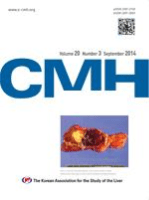
Clinical and Molecular Hepatology
Advancing liver health through innovative research.Clinical and Molecular Hepatology, published by the Korean Association for the Study of Liver, stands at the forefront of hepatology, offering a significant platform for research and innovation in liver diseases. Established in 1995 as an open access journal, it aims to disseminate high-quality research that spans the fields of hepatology, molecular biology, and medicine. With an impressive impact factor ranking it in the Q1 category for 2023 in both Hepatology and Molecular Biology, the journal facilitates a rich exchange of knowledge among professionals, researchers, and students globally. With its dedicated coverage from 2012 to 2024 and exceptional Scopus rankings placing it within the top 10% of journals in its field, Clinical and Molecular Hepatology is an indispensable resource for advancing the understanding and treatment of liver conditions. Located in Seoul, South Korea, the journal emphasizes rigorous peer review and is committed to enhancing clinical practice and molecular research, making it an ideal venue for groundbreaking studies in liver health.

Expert Review of Gastroenterology & Hepatology
Your Gateway to Cutting-Edge Insights in GastroenterologyExpert Review of Gastroenterology & Hepatology is a premier journal published by Taylor & Francis Ltd that aims to bridge the gap between clinical practice and research in the fields of gastroenterology and hepatology. Established in 2007, this journal has rapidly gained recognition, boasting a Q1 ranking in Gastroenterology and a Q2 ranking in Hepatology for 2023, while achieving impressive Scopus rankings of 31st and 25th respectively in these disciplines, placing it within the top 81st and 70th percentiles. The journal’s objective is to provide a comprehensive platform for the latest developments, innovative treatments, and critical reviews, catering to researchers, healthcare professionals, and students alike. Located in the United Kingdom, the journal does not operate under an open access model but ensures that its content is accessible to a global audience through institutional subscriptions. By consistently publishing high-impact reviews and articles, Expert Review of Gastroenterology & Hepatology solidifies its role as a vital resource in advancing knowledge and clinical practice within these challenging and evolving fields.
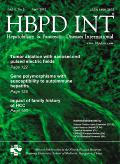
Hepatobiliary & Pancreatic Diseases International
Innovating treatment pathways for complex gastrointestinal diseases.Hepatobiliary & Pancreatic Diseases International, an esteemed journal published by Elsevier, stands as a vital resource within the field of gastroenterology and hepatology. Established in 2002, this journal has developed a significant reputation, currently ranked in the second quartile (Q2) in both categories as of 2023, showcasing its commitment to high-quality research and clinical studies. Based in Singapore, Hepatobiliary & Pancreatic Diseases International serves as an essential platform for researchers, clinicians, and healthcare professionals to share innovative findings, therapeutic approaches, and advancements in the understanding of hepatobiliary and pancreatic diseases. Although the journal does not currently offer Open Access, its rigorous peer-review process ensures that published articles maintain the highest scientific standards, fostering knowledge dissemination among the global research community. With a convergence period extending to 2024, this journal continues to play a pivotal role in enhancing the understanding and treatment of complex gastrointestinal conditions, making it a must-read for anyone engaged in this dynamic field.

Hepatic Medicine-Evidence and Research
Unlocking Insights in Hepatic MedicineHepatic Medicine-Evidence and Research is a distinguished open-access journal published by DOVE MEDICAL PRESS LTD, dedicated to advancing knowledge in the field of hepatology. Since its inception in 2009, this journal has served as a critical platform for researchers, professionals, and students alike, facilitating the dissemination of high-quality, peer-reviewed articles that address the latest developments in hepatic medicine. With a commitment to accessibility, all articles are freely available to a global audience, thereby promoting collaboration and innovation in research. Although specific metrics such as H-index and Scopus ranks are currently undeclared, the journal is recognized for its contributions to clinical practice and ongoing research in liver health, making it an essential resource for those seeking to enhance their understanding of hepatic conditions and treatments. By prioritizing the latest evidence and research in this vital field, Hepatic Medicine-Evidence and Research continues to play a pivotal role in influencing clinical outcomes and shaping future studies.
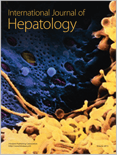
International Journal of Hepatology
Exploring the frontiers of liver disease management.The International Journal of Hepatology, published by HINDAWI LTD, is a premier open-access journal dedicated to the field of hepatology. Since its inception, this journal has championed the dissemination of cutting-edge research and reviews pertaining to liver health, diseases, and therapies. With an ISSN of 2090-3448, the journal has been committed to open-access publishing since 2011, ensuring that vital knowledge is readily available to researchers, clinicians, and students worldwide. Based in Egypt, this journal stands out in its category, achieving a Q3 ranking in 2023 within the scope of Hepatology by Scopus, which ranks it #43 out of 82 in the field. The International Journal of Hepatology offers a platform for significant findings and discussions that influence clinical practices and foster new research directions, thus playing a crucial role in advancing the understanding of liver diseases and their management.
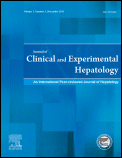
Journal of Clinical and Experimental Hepatology
Advancing liver health through groundbreaking research.The Journal of Clinical and Experimental Hepatology, published by Elsevier - Division Reed Elsevier India Pvt Ltd, is a premier platform dedicated to advancing the field of hepatology. With an ISSN of 0973-6883 and an E-ISSN of 2213-3453, this journal has gained recognition for its impactful contributions to both clinical practice and scientific research in the domain of liver health. Ranking in the Q2 quartile for Hepatology in 2023 and positioned at 33rd out of 82 in Scopus’s Hepatology category, it reflects a robust impact factor and a commitment to publishing high-quality, peer-reviewed articles. Researchers, clinicians, and students can engage with a wealth of open-access content covering the latest advancements, challenges, and insights in hepatology, as the journal aims to disseminate knowledge from 2011 through 2025. Join the community of experts as we explore critical developments in the understanding and treatment of liver diseases.
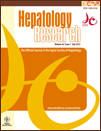
HEPATOLOGY RESEARCH
Empowering global knowledge on liver disease and infections.Hepatology Research, ISSN 1386-6346 and E-ISSN 1872-034X, is a premier academic journal published by Wiley that serves the dynamic fields of Hepatology and Infectious Diseases. With an impressive 2023 impact factor and ranked Q2 in Hepatology and Q1 in Infectious Diseases, this journal stands out as a vital resource for researchers, professionals, and students. Covering a broad spectrum of topics related to liver health, the journal aims to disseminate cutting-edge research and insights from the converged years of 1997 to 2024. As an open-access platform, it fosters the global sharing of knowledge, providing valuable access to pioneering studies that address pressing issues in liver disease and its associated infections. Based in the United Kingdom, at 111 River St, Hoboken, NJ, Hepatology Research is pivotal for advancing scientific understanding and improving patient outcomes worldwide.
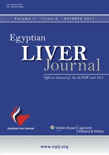
Egyptian Liver Journal
Innovative findings shaping the future of liver care.The Egyptian Liver Journal, ISSN 2090-6218, is a vital resource for the hepatology community, published by SPRINGEROPEN. Since its establishment in 2012, this journal has served as a platform for disseminating significant findings in liver research, with an emphasis on enhancing understanding and treatment of liver diseases. Recognized with a Q3 ranking in Hepatology for 2023, the Egyptian Liver Journal aims to bridge the gap between research and clinical practice through its commitment to open access, fostering a global exchange of knowledge without barriers since 2019. With a focus on innovative studies, reviews, and clinical guidelines, the journal appeals to a diverse audience of researchers, clinicians, and students dedicated to advancing liver health. Situated in the heart of the United States, this publication addresses the pressing issues within the field and encourages submissions that address the future of liver care and treatment.
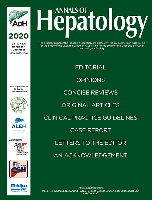
Annals of Hepatology
Innovating liver care with cutting-edge research.Annals of Hepatology is an esteemed open-access journal dedicated to the dynamic field of liver research and hepatology. Published by Elsevier España since 2002, this journal has established itself as a pivotal resource for researchers and clinicians alike, boasting a remarkable impact in the medical community with its 2023 rankings placing it in the Q2 quartile for Hepatology and Q1 quartile in Medicine (Miscellaneous). With an impressive Scopus rank of #20 out of 82 in the field of Hepatology and a notable 76th percentile standing, the journal is committed to disseminating high-quality, peer-reviewed articles that advance the understanding of liver diseases and their management. The editorial scope encompasses a broad range of topics, including liver pathology, therapeutic interventions, and public health implications related to hepatic disorders. Researchers, healthcare professionals, and students interested in the latest advancements in hepatology will find Annals of Hepatology an invaluable platform for sharing and accessing knowledge, with the convenience of open access enhancing global visibility and collaboration in this critical field of medicine.
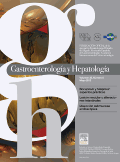
Gastroenterologia y Hepatologia
Bridging research and practice in gastroenterology and hepatology.Gastroenterologia y Hepatologia, published by Elsevier España SLU, is a distinguished journal dedicated to advancing the fields of gastroenterology and hepatology. With a publication history spanning from 1982 to 2024, this journal is recognized for its commitment to disseminating high-quality research and reviews that address critical developments in the diagnosis and treatment of gastrointestinal and liver diseases. Although it currently ranks in the Q3 quartile in both gastroenterology and hepatology based on the 2023 metrics, the journal continues to attract a global audience of researchers, healthcare professionals, and students eager to engage with the latest findings. The journal is accessible in both print and electronic formats (ISSN: 0210-5705), making its valuable insights reachable to a broad spectrum of subscribers. By fostering a platform for rigorous scholarly communication, Gastroenterologia y Hepatologia plays a vital role in shaping the future of research in these essential medical fields.